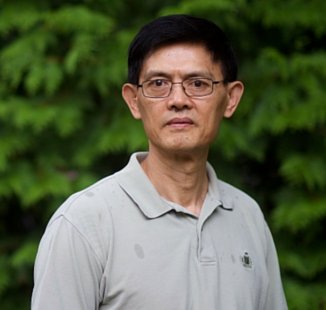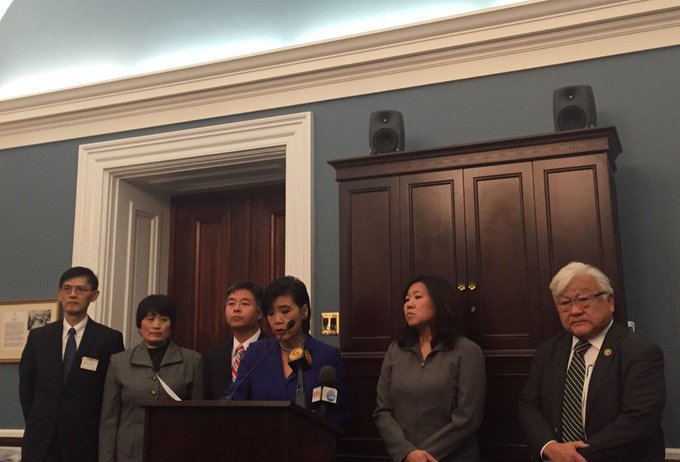We stand with Prof Xi and all Chinese scientists wrongfully accused of espionage. #JusticeForProfXi Full statement: ow.ly/8nMY30bCsfN
Study Suggests Asians Most Likely to Be Charged With Espionage
One in 5 Asians charged with espionage are not convicted or are convicted of lesser crimes, a rate twice as high as charged non-Asians, while the proportion of Asians being charged with espionage has more than doubled in recent years, a new study suggests.
Those claims were detailed in an executive summary released in May by the Committee of 100, a nonprofit based in New York City that focuses on Chinese-American issues.

The report previews a year-long study undertaken by legal scholar Andrew C. Kim of South Texas College of Law in Houston. Its findings, which the summary notes are not conclusive, come amid concerns that some Asian- and Chinese-American scientists and researchers have been accused of spying — only to have their charges dropped.
“The growing number of false accusations towards American citizens of Asian descent and the factual similarities among the situations show an apparent pattern and practice of selective and discriminatory treatment,” Committee of 100 chairman Frank H. Wu said in a statement. “It deserves rigorous monitoring.”
Among the key findings:
- Chinese and Asians convicted of espionage got average prison sentences of 25 and 22 months, respectively, at least double what defendants with western names received.
- Twenty-one percent of Chinese and 22 percent of all Asians charged with espionage were never found guilty of spying or other serious crimes, a rate double that of charged non-Asians.
- The rate of Chinese charged with espionage between 2009 and 2015 tripled to 52 percent, compared to the period between 1996 and 2008.
Drawing on records from a federal online public database, the study analyzed a random sample of 136 cases brought under the Economic Espionage Act between 1997 and 2015, according to the executive summary. Researchers used defendants’ names to deduce their race since that information was unavailable in most court documents.
Congress enacted the Economic Espionage Act of 1996 to address the theft of trade secrets, which was becoming a growing threat, according to the Justice Department.
The Committee of 100’s executive summary does point out limitations in Kim’s study. Among them is the relatively small sample size used, writes University of Pittsburgh School of Law professor David A. Harris.
Harris notes that a number of things also remain unknown, including how many investigations occurred under the Economic Espionage Act during the study period; the ethnic groups of those investigated; and the rate of those investigations becoming cases in which charges were filed.
Also unclear were the number of espionage-related cases charged under statutes other than the Economic Espionage Act.
“Moreover, as Professor Kim himself acknowledges, there are ‘many reasons other than innocence’ that could explain why defendants were acquitted, had charges dropped, or plead guilty to reduced charges,” Harris adds.
Still, Harris says Kim’s work raises questions about whether Chinese scientists and researchers are being racially profiled.
“As we transition into a new presidential administration, with a new team atop the Department of Justice, these questions cannot — they must not be — ignored,” Harris writes.
The Justice Department did not immediately respond to an NBC News request for comment about the study.

Findings were released the same month that Xiaoxing Xi, a Temple University physics professor, filed a federal lawsuit on May 10 in Pennsylvania against the FBI alleging malicious prosecution.
Xi, 59, was accused of passing sensitive technological information to counterparts in China, in an effort to assist them “in becoming world leaders of the superconductivity field,” the Justice Department said in a 2015 news release.
RELATED: Scientist Formerly Accused of Spying Sues Alleging FBI Agent Falsified Evidence
Prosecutors dropped those charges in September 2015 after Xi and his attorney gave a presentation to investigators a month earlier, according to court papers.
Earlier that same year, the government also dismissed spying charges against Xiafen “Sherry” Chen, a hydrologist, a week before heading to trial.
Both Xi and Chen are naturalized U.S. citizens.

In its executive summary, the Committee of 100 writes that questions raised in the study can be answered only “through an independent and transparent investigation of DOJ espionage investigations.”
Those questions include knowing the extent to which the large number of Asians charged under the Economic Espionage Act can be explained by higher rates of Asian Americans in technical fields, and whether preconceptions of Asians as spies lead prosecutors “to misinterpret ambiguous evidence as conclusive evidence of guilt.”
“No doubt there have been instances of Asian Americans, like other American citizens, who have violated the law and who have then faced justifiable investigation and prosecution,” Wu, the Committee of 100 chair, said. “There is nonetheless a definite line to be drawn between appropriate prosecutions based on actual evidence free of bias and overreaching persecution that is triggered by unfounded suspicions and tainted by racial prejudice.”






